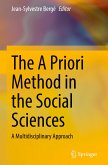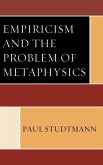The question of the a priori-can an adequate epistemology be developed without appeal to a non-empirical source of justification?-is a core issue running throughout the history of philosophy, and recent decades have seen some provocative and potentially epochal work on the issue. Arthur Sullivan provides a clear-headed evaluation of the upshot of these developments. He argues that the notion of the constitutive a priori provides the best means, all things considered, of accommodating these recent developments into a coherent, compelling view. The constitutive a priori is most commonly known as a position within the philosophy of science, holding that one of Kant's signature moves provides the means to incorporate unforeseen drastic shocks into existing theory. This book shows that this notion of the constitutive a priori provides not merely a satisfactory epistemological framework, but, further, a compelling way to accommodate and integrate some of the most significant lessons learned in twentieth century philosophy. Its distinctive contribution lies in the case it builds for taking this constitutive a priori orientation as a good means of integrating and consolidating certain epochal insights of Wittgenstein, Carnap, Quine, Kripke, and Kaplan.
Hinweis: Dieser Artikel kann nur an eine deutsche Lieferadresse ausgeliefert werden.
Hinweis: Dieser Artikel kann nur an eine deutsche Lieferadresse ausgeliefert werden.








